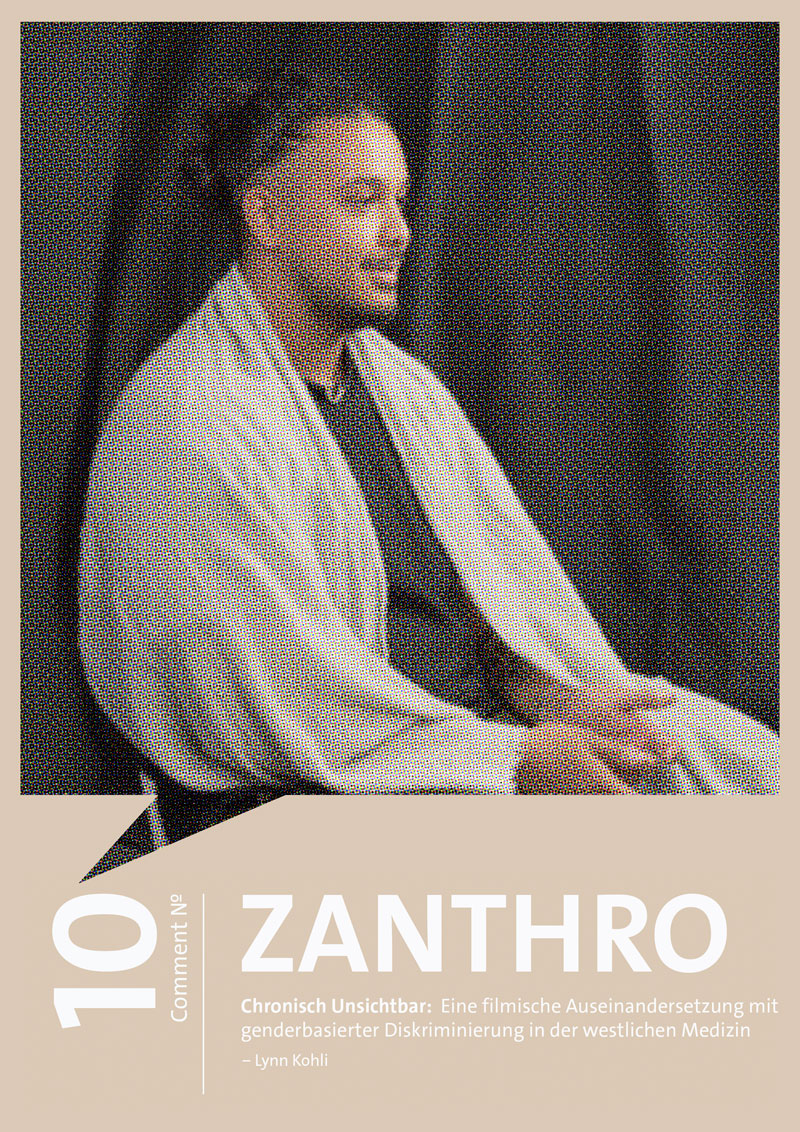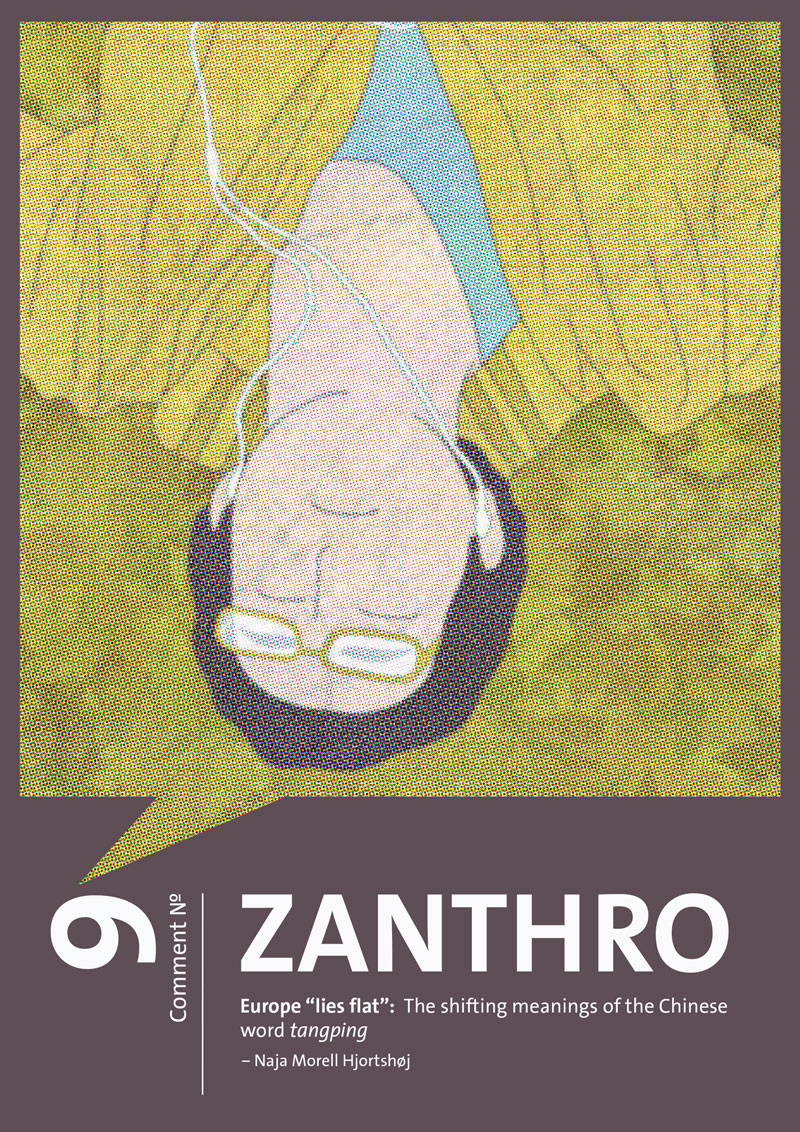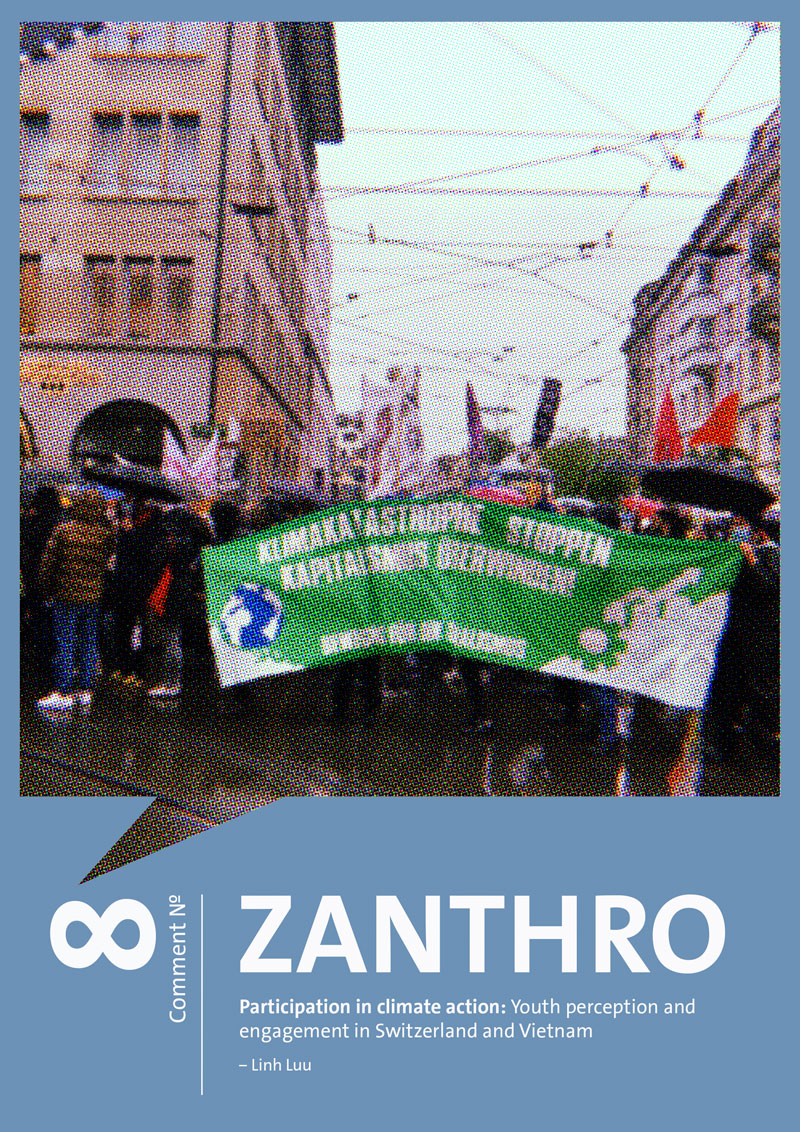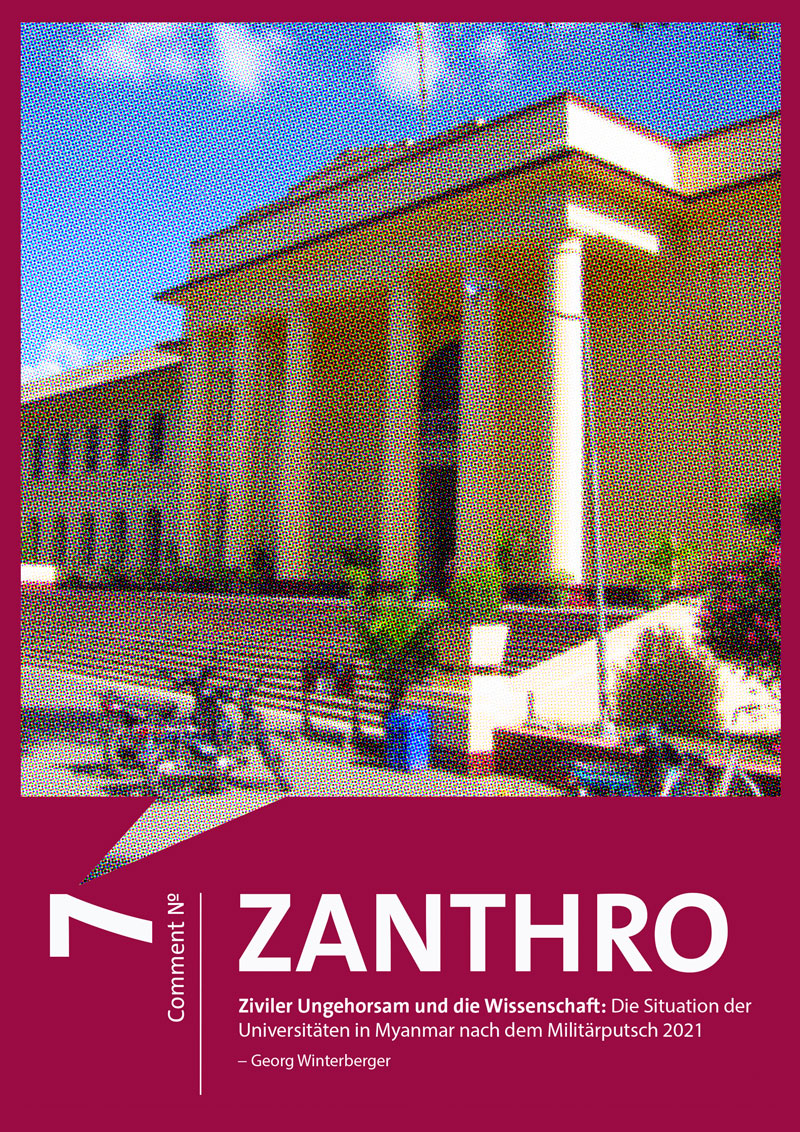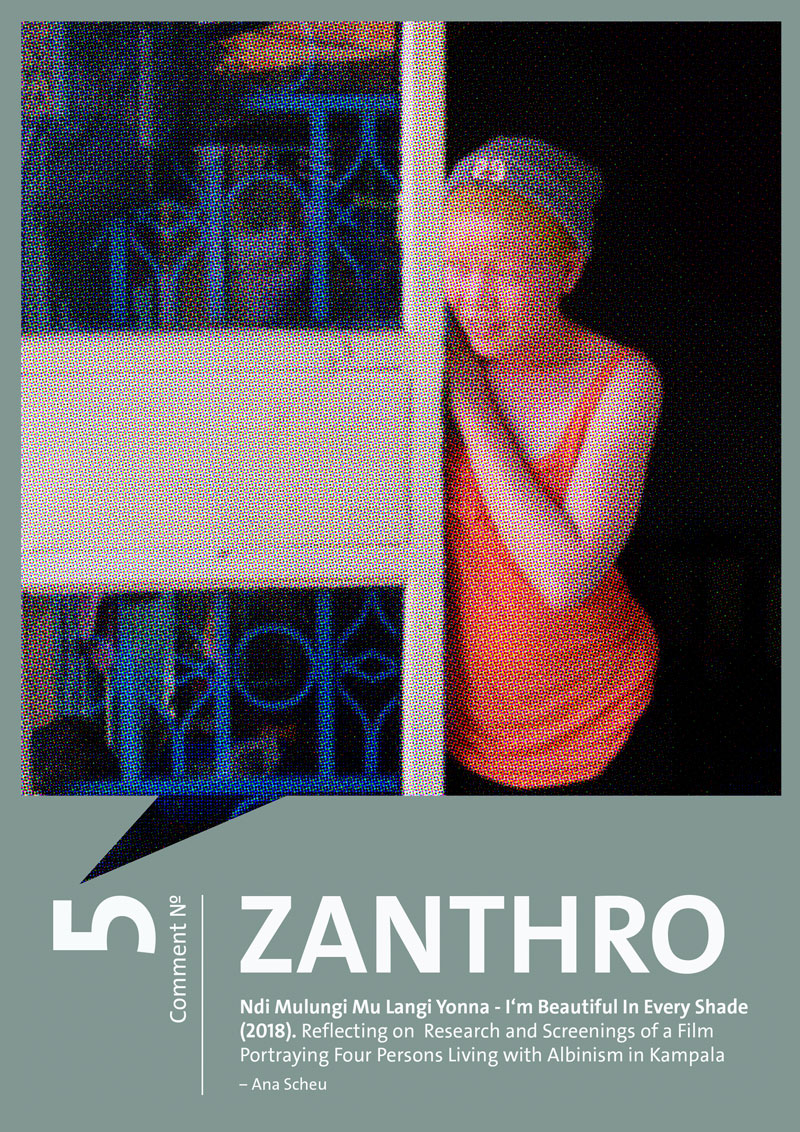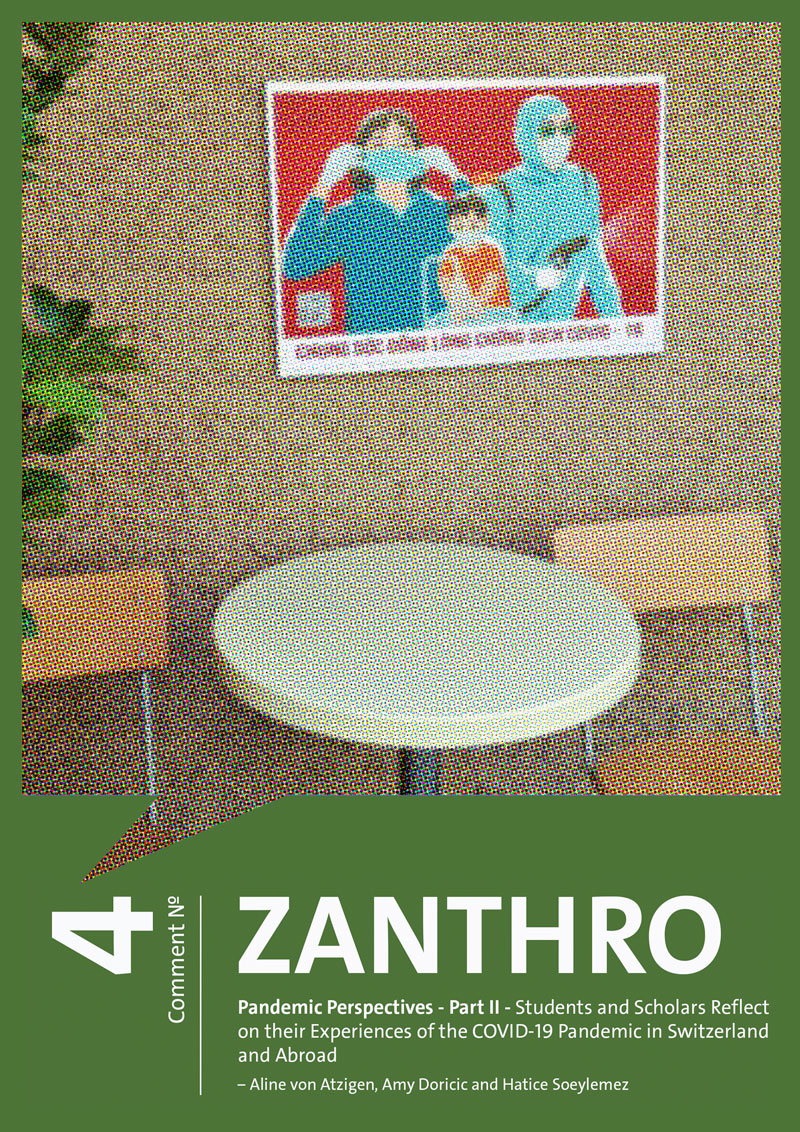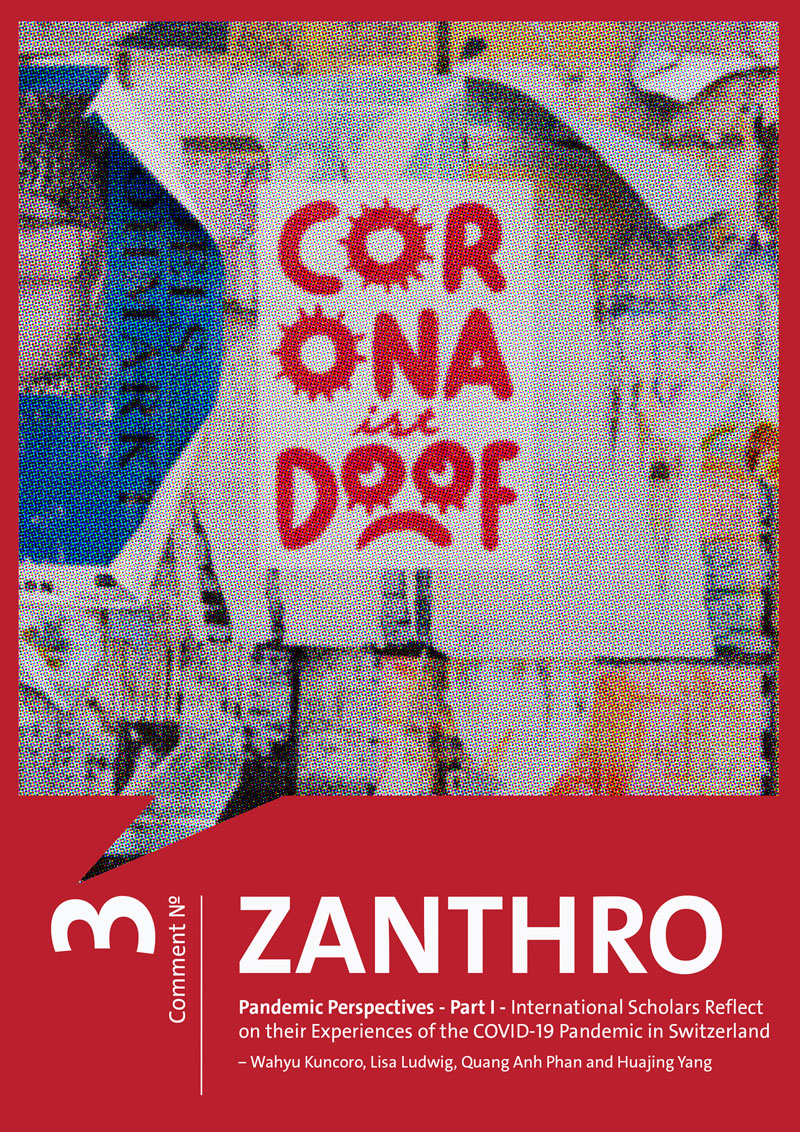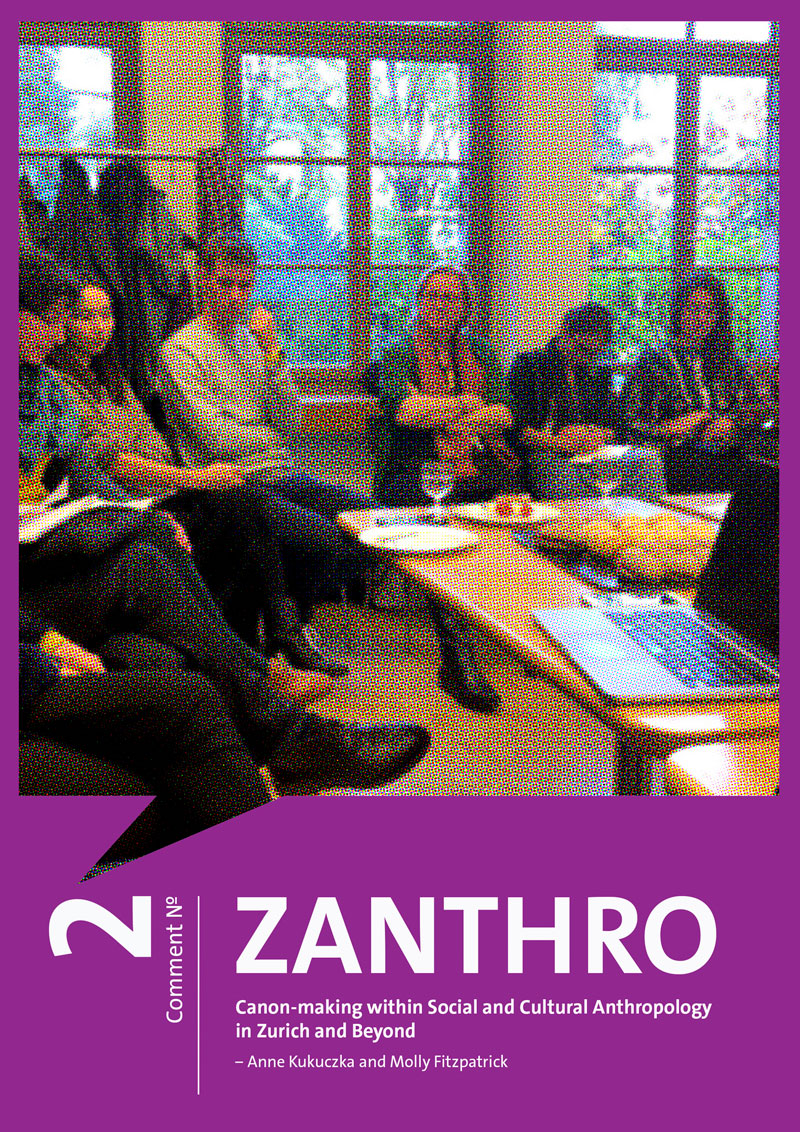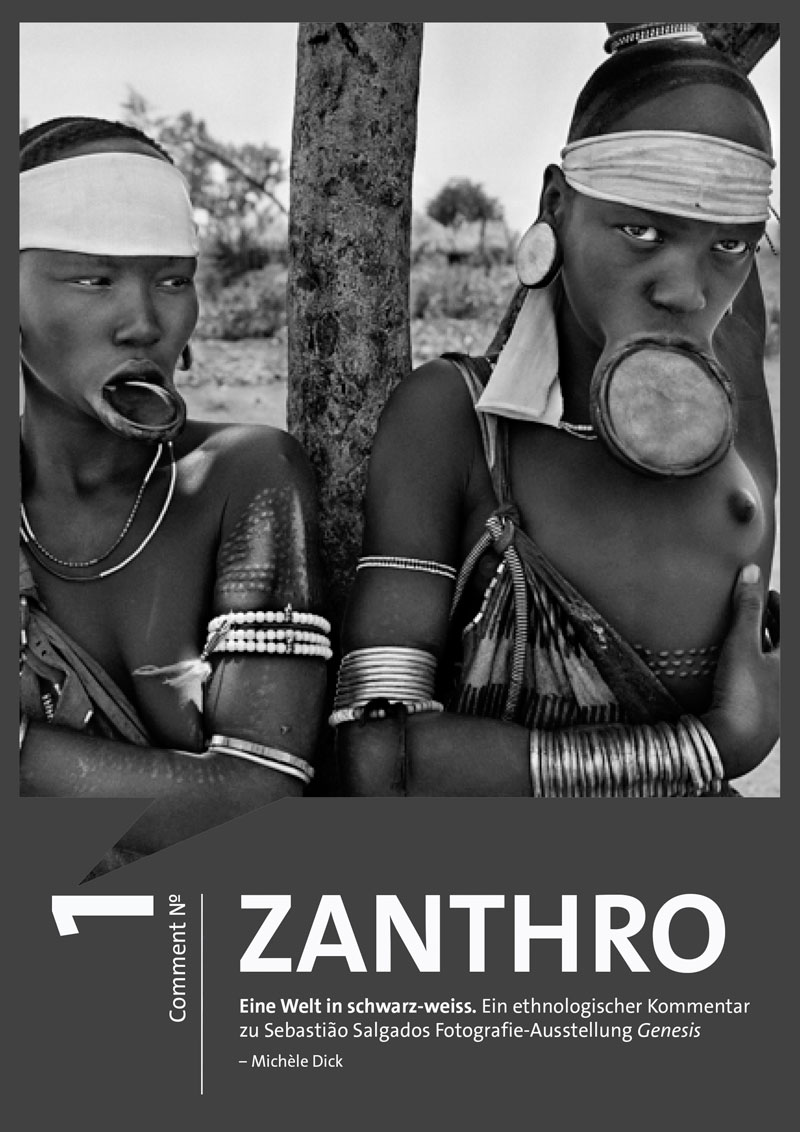ZANTHRO Comments
ZANTHRO Comment No 12
Amir Mommartz und Lynn Kohli
Kulturelle Aneignung: Was tragen die Sozial- und Kulturwissenschaften zur Debatte bei?
Jede:r scheint nun eine Meinung zum Thema ‘kulturelle Aneignung’ zu haben. Gleichzeitig ist ‘kulturelle Aneignung’ – zumindest im Sinne eines kulturellen ‘Transfers’ – ein klassisches Thema der Sozial- und Kulturanthropologie. Ausgehend von diesem Kontext, beschäftigen wir uns in diesem Comment mit der Frage: Welchen Beitrag können Sozial- und Kulturwissenschaften zu einer solchen öffentlichen Debatte leisten?
ZANTHRO Comment No 11
Bhima
Who is the Nation's Daughter?
Horrifying incidents of sexual violence against women have been occurring in India recently. It is important to ask few questions here. When do feminists take to the streets in India? Which incidents stimulate large-scale protests against crimes against women? The answers can vary but are complex, versatile and layered.
ZANTHRO Comment No 10
Lynn Kohli
Chronisch Unsichtbar: Eine filmische Auseinandersetzung mit genderbasierter Diskriminierung in der westlichen Medizin
Im Rahmen meiner Bachelorarbeit befasste ich mich anhand des Beispiels Endometriose mit genderbasierter Diskriminierung in der westlichen Medizin. Durch die filmische Inszenierung von Endometriose als fiktiver Männerkrankheit wird die Diskriminierung deutlich gemacht. Mit meiner Bachelorarbeit will ich einen Beitrag zur Aufklärungsarbeit leisten und Forderungen stellen.
ZANTHRO Comment No 9
Naja Morell Hjortshøj
Europe “lies flat”: The shifting meanings of the Chinese word tangping
Tangping (躺平), which can be directly translated as “lying flat”, began as a criticism of overworking culture in Chinese companies. Tangping started to gain popularity after it was mentioned in a blog post written by a 31-year-old Chinese factory worker named Luo Huazhong in April 2021. In the blog, Luo announced that he was no longer willing to participate in society’s rat race to success by working endless hours. Therefore, he had chosen to “lie flat”, opting for a more easy-going approach to life in which he would go from job to job, live off his savings, and spend more time doing things he likes.
ZANTHRO Comment No 8
Linh Luu
Participation in climate action: Youth perception and engagement in Switzerland and Vietnam
As a Vietnamese master’s student with an interest in environmental issues, climate change and sustainability, Linh Luu compares how Swiss and Vietnamese youth engage in climate response and action based on her observations during her work placement at the University of Zurich Department of Social Anthropology and Cultural Studies (ISEK) in the spring semester of 2021.
ZANTHRO Comment No 7
Georg Winterberger
Ziviler Ungehorsam und die Wissenschaft: Die Situation der Universitäten in Myanmar nach dem Militärputsch 2021
„Whatever happens, we will continue to engage in the civil disobedience movement until the end. We have to resist because we can’t leave our future generations under military rule” (The Irrawaddy 2021). Diese Aussage stammt von einer Person, die zu den wissenschaftlichen Assistierenden an der Yangon University gehörte. Anfang Mai ist sie – wie tausend andere – vom Dienst suspendiert worden wegen Aufwiegelung gegen die Militärregierung, die mit einem Putsch am 1. Februar 2021 die Macht übernommen hatte.
ZANTHRO Comment No 6
Yuki Hubmann, Ursina Jaeger und Rebecca Mörgen
Wissen in Bewegung, oder: „auf einmal waren es nicht mehr nur der Text und ich“
Nimmt man sich dem Unterfangen an, wissenschaftliche Analysen aus der Universität hinauszutragen, stellen sich unmittelbar ganz konkrete Probleme und Fragen. Im (öffentlichen) Dialog begegnet man einer Vielfalt an Stimmen, deren Sprechakte unterschiedlich legitimiert, und mit divergierenden Intentionen aufgeladen sind. Alltagskategorien treffen auf analytische Betrachtungsweisen, Meinungen auf Lesarten, Aktivismus auf Erfahrung, Likes auf Shitstorms.
ZANTHRO Comment No 5
Ana Scheu
Ndi Mulungi Mu Langi Yonna – I’m Beautiful In Every Shade (2018)
Reflecting on Research and Screenings of a Film Portraying Four Persons Living with Albinism in Kampala
In the summer of 2017, Ana Scheu joined a four-week field school to Uganda offered by the ISEK-Social and Cultural Anthropology. The field school was organised in collaboration with the Makerere University in Kampala, and centred on the topic „Disability and Technology in Uganda”. After choosing to focus on the experiences of people with albinism, Ana Scheu decided that she wanted to work with the method of film.
ZANTHRO Comment No 4
Aline von Atzigen, Amy Doricic and Hatice Soeylemez
Pandemic Perspectives - Part II -
Students and Scholars Reflect on their Experiences of the COVID-19 Pandemic in Switzerland and Abroad
What is it like to be on an ethnographic fieldwork trip in China when an epidemic breaks out? How are people with different levels of proficiency in German experiencing the COVID-19 outbreak in German-speaking Switzerland? What patterns of immobility and mobility emerge when your family is spread across two countries during a time of unprecedented travel restrictions? In this second part of the Pandemic Perspectives series, Masters and PhD students share their unique experiences of the COVID-19 pandemic.
ZANTHRO Comment No 3
Wahyu Kuncoro, Lisa Ludwig, Quang Anh Phan and Huajing Yang
Pandemic Perspectives - Part I -
International Scholars Reflect on their Experiences of the COVID-19 Pandemic in Switzerland
While the COVID-19 pandemic and the consequent ‘lockdown’ in Switzerland has been a challenging time for everyone, it has been particularly demanding for those who are (far) away from home. In this first part of the new series ‘Pandemic Perspectives’, four international scholars currently based at the Department of Social Anthropology at the University of Zurich reflect on their experiences of these strange times.
ZANTHRO Comment No 2
Anne Kukuczka and Molly Fitzpatrick
Canon-making within Social and Cultural Anthropology in Zurich and Beyond
In March 2019, all lecturers at the department of social and cultural anthropology at the University of Zurich received a letter from a group of concerned students. The letter was written in the context of Women's day on the 8th of March and in preparation for the Swiss-wide Frauenstreik (Women's Strike) on June 14th 2019. The letter pointed out structural issues related to gender inequality at the department and suggested that the lecturers make a priority of reworking the syllabus of “History of Anthropology” (“Fachgeschichte”) to include more feminist and intersectional approaches. They also demanded the use of gender-sensitive language in our teaching and writing.
ZANTHRO Comment No 1
Michèle Dick
Eine Welt in schwarz-weiss.
Ein ethnologischer Kommentar zu Sebastião Salgados Fotografie-Ausstellung Genesis
Genesis. Ein wuchtiger Titel für wuchtige Bilder. Die Salgados sparten nicht an Dramaturgie, an Romantik und an Ästhetik. Das taten sie selten. Sebastião Salgado, ein Mann der Extreme. Während er sich in seiner bisherigen Fotografie intensiv den negativen Konsequenzen der westlichen Zivilisation gewidmet und Elend und Armut einer Weltöffentlichkeit vor Augen geführt hatte, versucht er nun mit Genesis, die «Schönheit [unseres verwundbaren Planeten] greifbar zu machen»


